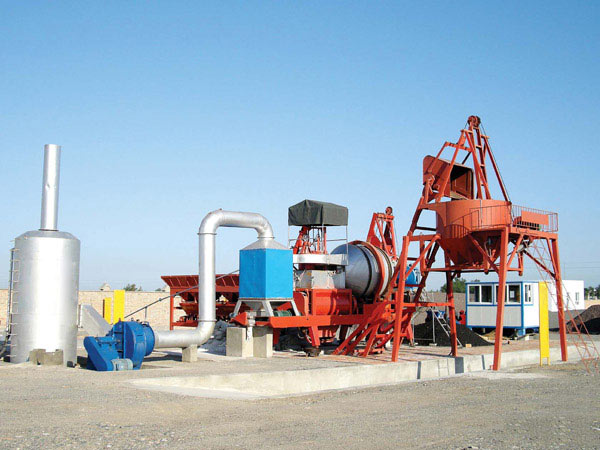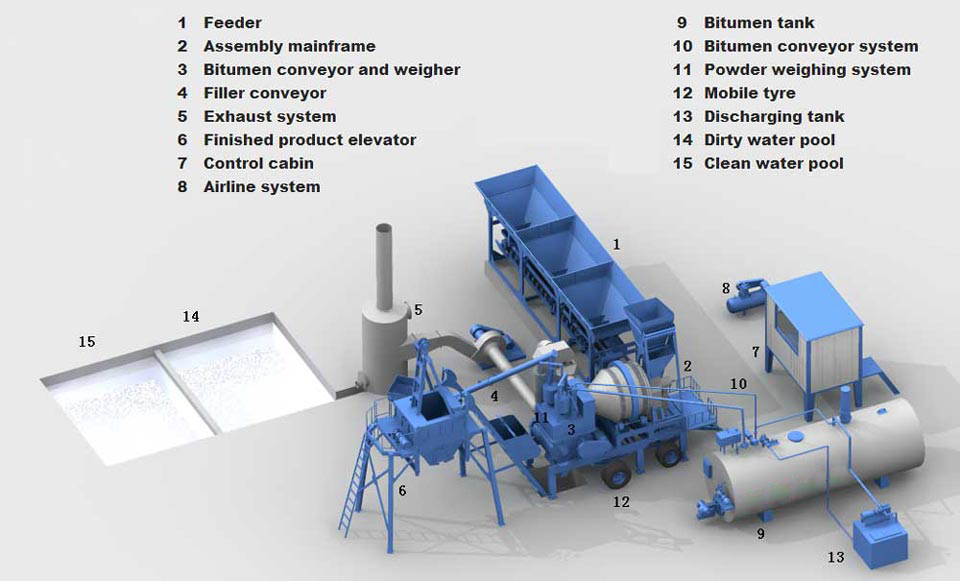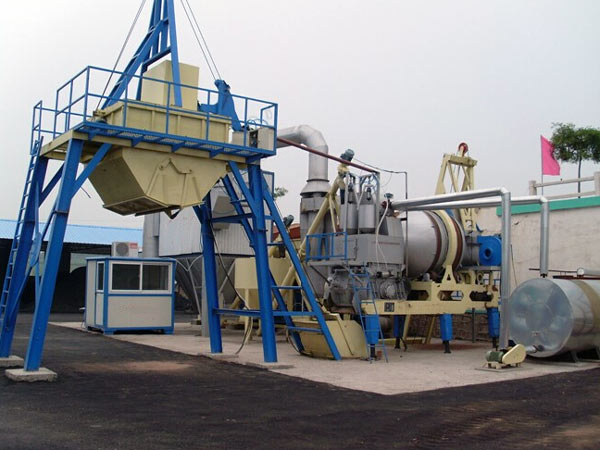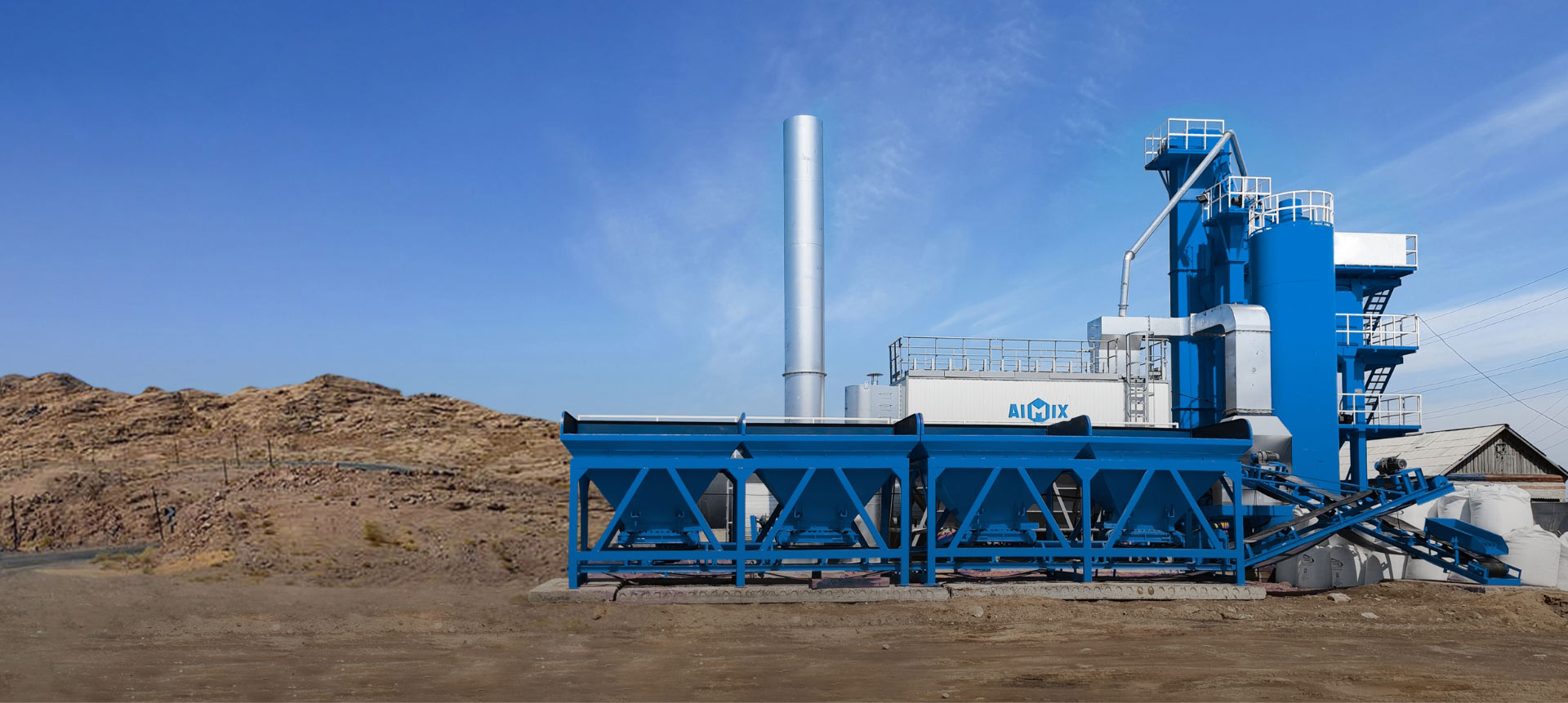When considering asphalt plant options, two popular choices are portable asphalt mixing plants and continuous drum type asphalt plants. Let’s compare these two types to understand their differences and advantages, as well as their applications:
Mobility and Portability
Portable Asphalt Mixing Plant: As the name suggests, portable asphalt mixing plants are designed for easy transportation and quick setup at different job sites. They are compact and can be moved from one location to another, making them suitable for projects that require frequent relocation. Their mobility makes them ideal for small to medium-scale projects, such as local road repairs, small parking lots, and rural road construction.

Continuous Drum Type Asphalt Plant: Continuous drum type asphalt plants are typically stationary installations. They are designed for high-volume production and are more suitable for projects that have a consistent and continuous demand for asphalt. These plants are commonly used for large-scale projects, including highway construction, airport runways, and major infrastructure development.
Production Capacity
Portable Asphalt Mixing Plant: Portable plants are usually smaller in size and have lower production capacities compared to continuous asphalt plants. They are ideal for small to medium-scale projects with moderate asphalt production requirements. Portable plants can typically produce between 20 to 80 tonnes of asphalt per hour, depending on their size and configuration.

Continuous Drum Type Asphalt Plant: Continuous drum type plants are known for their high production capacity. They are designed for large-scale projects that require a significant amount of asphalt production on a continuous basis. These plants can produce asphalt at a rate of 100 to 500 tonnes per hour or more, making them suitable for high-demand projects with tight construction schedules.
Mixing Process
Portable Asphalt Mixing Plant: Portable plants usually employ a batch mixing process. They have separate compartments for storing and proportioning aggregates, asphalt binder, and other additives. The mixing process occurs in batches, allowing for precise control over the asphalt mix composition. This makes them well-suited for projects that require different asphalt mixes or frequent changes in mix specifications.
Continuous Drum Type Asphalt Plant: Continuous drum type plants utilize a continuous mixing process. The aggregates and asphalt binder are fed into the drum continuously, and the mixing process happens as they move through the drum. This results in a continuous supply of hot mix asphalt. Also you can directly choose a hot asphalt mixing plant. Continuous drum plants are efficient for large-scale projects that require a consistent and uninterrupted supply of asphalt.
Flexibility and Versatility
Portable Asphalt Mixing Plant: Portable plants offer greater flexibility in terms of location and project scope. They can be easily transported and set up at different sites, allowing contractors to take on a variety of projects in different locations. They are versatile and can adapt to the specific needs of small to medium-scale projects.

Continuous Drum Type Asphalt Plant: Continuous drum type plants are less flexible in terms of mobility. They are more suitable for long-term projects that require a consistent and large supply of asphalt. These plants are designed for high-volume production and are ideal for major infrastructure projects that require a continuous and uninterrupted supply of asphalt.
Energy Efficiency
Portable Asphalt Mixing Plant: Portable plants tend to have lower energy consumption due to their smaller size and lower production capacity. They can be more energy-efficient for smaller projects with moderate asphalt production requirements, helping to reduce operational costs.
Continuous Drum Type Asphalt Plant: Continuous drum type plants typically have higher energy consumption due to their continuous operation and larger production capacity. However, advancements in technology have made them more energy-efficient compared to older models. These plants are designed to handle high-volume production efficiently, ensuring a continuous supply of asphalt.
Ultimately, the choice between a portable asphalt mixing plant and a continuous drum type asphalt plant depends on your specific project requirements, mobility needs, production capacity, and budget. Consider factors such as project scale, frequency of relocation, production volume, and long-term goals to make an informed decision that aligns with your project’s needs and objectives.
If you want to see real case, here is a case from Indonesia: https://aimixgroup.com/successful-installation-of-80t-asphalt-mixing-plant-indonesia/.
